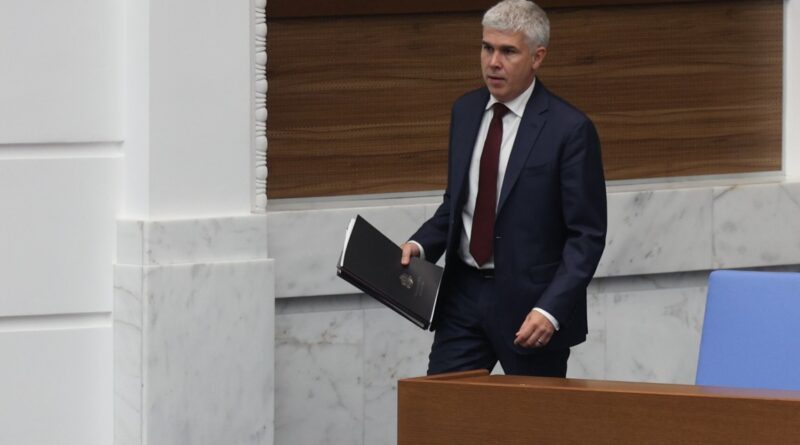Chiren CCGT Expansion: Unanswered Questions and Missed Opportunities
Photo:BTA
The recent hearing of Vladimir Malinov, Bulgaria’s caretaker Minister of Energy, regarding the expansion project of the Chiren Central Gas Storage (CCGT), left critical questions unaddressed. Both the lack of inquiries and detailed responses have perpetuated ambiguity around the project’s termination. Below is an analysis of key issues and their implications.
1. Financial Losses and Unrealized Revenues
The Minister’s assertion that the contract’s termination caused no damage to Bulgartransgaz (BTG) is inconsistent with the facts. The damages are not limited to the non-receipt of liquidated damages from the contractor for delays and non-performance. They also include substantial future revenue losses. Based on BTG’s 2023 financial statements, the unrealized revenue for 2025—when the project was slated to be operational—is estimated between BGN 25 and 30 million.
Beyond direct financial losses, indirect damages loom over traders, including state trader Bulgargas. These entities would be unable to capitalize on seasonal price differences. For example, leveraging the planned additional capacity (approximately 500 million cubic meters) against the price gap between low and high seasons could result in annual potential losses of around USD 100 million.
2. Questionable Reasons for Contract Termination
The Minister has cited an investigation by the European Public Prosecutor’s Office as a justification for the project’s cancellation. However, this rationale appears weak under scrutiny and there is no evidence that the EU PPO has ever directly or indirectly suggested such a move. A more plausible explanation is an effort to obscure prior mismanagement, halt the project, and return EU funds with the intent to dampen the European Commission’s interest in further investigation, potentially leading to its closure.
3. A Crisis Version of the Project
The narrative of a “scandal cover-up” gains further traction with the proposed crisis revision of the project. The new plan, which includes a compressor station and a reduced number of vertical wells (three), would limit the storage capacity to 720 million cubic meters, a stark contrast to the originally envisioned capacity of over 1 billion cubic meters. This diminished efficiency underscores the deviation from the original project goals.
Moreover, the revised project introduces the risk of increasing the operational pressure to 150 bar, which could exacerbate issues such as gas migration and reduced storage capacity. These challenges mirror the operational difficulties, bordering on outright sabotage, faced by Bulgaria’s Chaira pumped storage plant.
4. Neglected Financial and Geopolitical Factors
Another glaring omission in the parliamentary debates was the discussion of over USD 308 million in project financing. This funding, secured as a Citibank loan backed by USAID state guarantees, was intended to support the project’s implementation. It is worth noting that the USAID board includes the U.S. Secretary of State—currently Anthony Blinken.
The strategic significance of the Chiren CCGT expansion cannot be overstated. Enhanced natural gas storage capacity is crucial for supporting LNG imports into Southeast Europe, aligning with the priorities of both the U.S. government and the European Union. The deliberate downplaying of American and European interests raises concerns about the Minister’s intent to avoid scrutiny from external stakeholders.
5. Regional Implications and Market Impact
The Energy Minister’s actions, including delays and the eventual cancellation of the Chiren UGS expansion project, have had a direct negative impact on the regional energy market. These developments provide Russian pipeline gas with continued dominance, leaving LNG imports—key competitors from the U.S., Qatar, Algeria, Norway, and other sources—without sufficient infrastructure to expand their market share. Limited storage capacity further stymies diversification efforts.
The decision to terminate the Chiren UGS expansion project raises significant concerns about lost opportunities, mismanagement, and geopolitical repercussions. With the project sidelined, Bulgaria and Southeast Europe remain tethered to traditional gas sources, hindering progress toward energy diversification and regional stability. Transparency, critical examination, and accountability are essential to ensure future projects align with Bulgaria’s strategic and economic interests.
Ilian Vassilev




